- Home
- Roger Taylor
Into Narsindal tcoh-4 Page 41
Into Narsindal tcoh-4 Read online
Page 41
The following day marked, for most, the true end of the battle on the unnamed beach. The dead were buried. More correctly, they were honoured; burial of the Morlider dead had been under way almost continuously since the actual fighting had ended.
They were laid in great pits just below the storm line of the beach. Toran Agrasson, shocked at the betrayal of his people by Creost, and bemused by the treatment he and the other prisoners were receiving at the hands of the victors, organized the grim work. ‘We give our dead to the sea,’ he said, sweating as he hacked at the frozen ground. ‘But so many so close to the shore… ’ He shook his head. ‘They’ll rest easy enough here, touched by the sea when the winds blow fierce and strong.’
Apart from Cadmoryth and his crew, the only Rid-dinwr to perish was the young boy who had died under his sledge. He was carried back to his village by Hawklan and Urthryn, and laid to rest under a snow-laden tree. ‘He used to sit in it with his friends for hours in the summer,’ said his distraught grandmother. ‘What am I going to tell his parents, Ffyrst?’
Urthryn took her hand. ‘I’ve no words for the death of a child,’ he said, shaking his head. ‘For whatever comfort it gives, the healer here tells me he didn’t suffer. And he was helping Riddin’s true friends fight a cruel and treacherous foe. There are worse ways to die. In due time we’ll honour his name in the Lines, but… I’m sorry.’
He was very silent as they rode back to the camp, speaking only once. ‘For all I know, Creost may have killed his parents too,’ he said bitterly. Hawklan did not reply.
The Orthlundyn chose a small hillock overlooking the sea for the burial of their few dead. Isloman recovered a large rock from the shore and polished it smooth to serve as a simple, unmarked headstone in the Orthlundyn tradition. Hawklan stood for a long time staring down at the stone after the others had left.
‘There’s no answer,’ Gavor said into the long silence.
Out of the many expressions of sadness and grief that day, that for Cadmoryth and the other fishermen was the most formal. Usually a fisherman was buried as the Orthlundyn had chosen, in some spot overlooking the sea. However, those who died at sea were, like the Morlider, given to the sea.
‘But they should not be slid quietly into the cold waves, they should be sent the old way,’ was the will of the surviving fishermen. In the lore of the fishing communities it was said that before they had come to Riddin they had been a great seafaring race and that the greatest among them in those times were sent to their final resting places in a blazing ship.
Practicalities however, seemed set to confound them, turning their grief into angry frustration. There was no pitch, little kindling and, above all, no boat to tow the burial ship away from the landward embrace of the tide.
‘I knew him a little,’ Oslang said. ‘Will you accept my help?’
Thus the Orthlundyn, Riddinvolk, Cadwanwr and Morlider gathered in ranks on the shore to watch the funeral of the men who had pitched themselves against Sumeral’s cruel agent and both won and lost.
Gently, the fishermen laid out the bodies of their comrades in the remaining ship, each saying such farewells as moved him.
Girvan Girvasson helped them.
As he stood looking down at Cadmoryth’s pale dead face, the memories of his time with the fisherman and his wife flooded over him. He wanted to say ‘thank you’ for the quiet welcoming warmth that had pervaded almost its every moment, but his throat tightened around the words. His face strained, he took something from his pocket and looked at it for a moment, turning it over gently. Then he bent forward and placed it between Cadmoryth’s stiff fingers. It was the fisher-man’s pipe.
Saluting, Girvan turned and left the ship. He was the last.
As the Line Leader joined the others, two of the fishermen removed the gangplank and cut through the mooring ropes.
Then Oslang stepped forward and opened his arms as if to embrace the vessel.
Slowly, from no wind that any other could feel, the pennant at the ship’s masthead began to stir, the sail began to fill and, as if some unseen crew were manning it, the ship started to move slowly forward, its timbers creaking and its sail flapping, almost joyously, like a freed bird.
There were no other sounds save the sea itself. Even the gulls were silent.
As the ship moved out to sea, a flame flickered into life amidships, then one at the stern, then another and another. Soon it was blazing from end to end.
But the flames consumed nothing, nor would they until the time was fitting. This was the gift of the Cadwanwr. The Morlider ship would carry its brave and cruelly killed crew out across the endless ocean and into legend.
As it dwindled into the distance, its bright beacon flame shone like starlight in the tears that ran down Girvan Girvasson’s cheeks unchecked.
Chapter 21
A brilliant sun made the snow-covered fields dazzling, and a sharp wind tumbled clouds across the blue sky. It also tumbled anything light enough through the whirling confusion of activity that was the Orthlundyn camp.
Tents and shelters were being dismantled and wres-tled with in the chilly buffeting breeze; people were running hither and thither-it was too cold to stand still; food, weapons, clothes were being packed vigor-ously, and a wide-eyed Ffyrst stared on in some amazement.
‘You brought all this on your backs?’ he said.
‘Most of it,’ Loman said. ‘But the horses carried the bigger items.’
Urthryn dismounted. ‘I commend you,’ he said. ‘I can’t avoid the feeling that some of my people would fall over if they had to travel more than a hundred paces without a horse.’
Loman laughed. ‘I think we can call a truce on that,’ he said. ‘I’ll not mock your walking if you don’t mock our riding.’
Urthryn drew in a long, bargaining, breath through pursed lips. ‘You’re asking a lot, Orthlundyn,’ he said.
Loman was unyielding. ‘Exigencies of war, horse-man. Exigencies of war,’ he pronounced.
Before the debate could continue however, Hawklan came between the two men.
‘None of your people are on patrol, are they?’ he asked Urthryn.
The Ffyrst nodded. ‘None,’ he said. ‘As you asked. Are you leaving now?’
‘Yes,’ Hawklan replied. ‘All of us as we agreed. Sepa-rately and quietly. The fewer see us, the better.’
Several days had passed since the funeral. It was an interlude which had given both Orthlundyn and Riddinvolk the opportunity for a much needed rest. Urthryn’s galloping messengers had brought no grim news from the Cadwanol of approaching armies and, as he had promised, supplies began to arrive. Also, to his undisguised relief and pleasure, so did further fighting squadrons.
Yet it was also a hectic time as the various travellers exchanged their histories, and officers from the two armies began to learn about the intricacies of each other’s forces and make detailed plans for the intended journeys.
Urthryn however, was still troubled at times by Hawklan’s pointed refusal to explain his own intentions further. Now he tried once more.
‘I’d feel much happier if I knew more clearly what you’re going to do, Hawklan,’ he said. ‘This business about Guardians and Ethriss and suchlike still feels decidedly odd to me.’ He raised a hand to fend off the inevitable reply. ‘Yes, I know, I’ve seen what I’ve seen and I’ve heard what I’ve heard, but I can’t help thinking that a good arrow storm would have brought those two Uhriel and that damned bird thing down, and they bled easy enough when Gravy laid into them.’
Hawklan laughed and put his arms around the shoulders of the two men.
Urthryn looked at him suspiciously. ‘You’re just going to say "Trust me", aren’t you?’ he said.
Hawklan shook his head. ‘No,’ he said, smiling. ‘I wouldn’t dream of asking that. You said it yourself; you’ve seen what you’ve seen, and you’ve heard what you’ve heard. Trust your eyes and your ears if you can’t trust the seat of your trousers.’
Urthryn sco
wled. ‘You’re worse than a Fyordyn to argue with,’ he said.
‘I try,’ Hawklan said. ‘I try.’
Then he became more serious, tightening his grip on the two men affectionately. ‘Loman, you know my heart. Take care in the mountains. I imagine Gulda will have the Fyordyn either in order or rebellion by now. Urthryn, you know more than you realize. Pay heed to Oslang and the Goraidin. Take great care in Narsindal, and plenty of arrows.’ He looked from one to the other. ‘Make no great scene of this parting. We’ll all meet again at Derras Ustramel.’
And with a brief embrace he was gone, striding off into the camp’s busy traffic.
From the top of a nearby tent, Gavor launched him-self after the retreating form. His landing was not one of his best.
‘Whoops, sorry, dear boy,’ he said thrusting his wooden leg into Hawklan’s jacket to gain his balance.
‘How’s the wing?’ Hawklan asked unsympathetically, straightening his collar.
‘Better,’ Gavor declared, hopping up on to Hawk-lan’s head. ‘Better. I’m well known for my great powers of recovery.’
Hawklan sniffed. ‘You’re still yawing I notice,’ he said.
Gavor bent forward and stared indignantly into Hawklan’s inverted face. ‘Don’t get technical with me, healer,’ he said. ‘You stick to your potions, I’ll do the flying.’
Hawklan laughed, but Gavor maintained a stern, figurehead dignity until they reached Serian.
‘All farewells made?’ Hawklan said as he mounted his horse.
‘I’d none to make,’ Serian said. ‘Let’s start this jour-ney now.’
Hawklan patted him. ‘Forward then,’ he said. ‘We’ll head south and then circle out of sight of the camp.’
Within the hour, Hawklan found himself approach-ing a small group of riders heading north. A quick glance told him that he was the last to arrive and as he joined them, the group began to move forward at an easy trot.
They maintained that pace for the rest of the day, and when they finally stopped to camp, Hawklan pronounced himself well pleased. Andawyr was less so, slithering down from his horse with shameless indig-nity.
‘I’m really going to have to put more effort into this,’ he said.
Hawklan laughed. ‘You’re going to have to put less effort into it,’ he retorted.
Andawyr growled sulkily.
Later, in the warmth of their shelter, Hawklan eased the pain in the Cadwanwr’s rebelling muscles. When he had finished, his hands were glowing and he rubbed them together slowly and gently, examining them as he did so.
‘What’s the matter?’ Andawyr asked.
‘Nothing,’ Hawklan replied reassuringly. ‘It’s just nice to be able to heal simple aches and pains again after the… ’ He hesitated. ‘After the hospital tent.’
Andawyr nodded understandingly and stretched his small frame out luxuriously but cautiously. ‘I think you’re going to have plenty of simple aches and pains between here and the caves,’ he said, yawning.
Hawklan smiled. ‘I doubt it,’ he said. ‘You’ve not got this far by refusing to learn, and you’ll be wiser by far in a day or so.’
Andawyr, however, was asleep, and Hawklan’s prophecy was greeted with a snore.
Hawklan’s eyes narrowed at the sound and he leaned forward and gently closed the Cadwanwr’s mouth.
* * * *
Over the next few days the wind became less strong, though it was occasionally blustery, and throughout had a raw, damp, edge to it that the fitful sun did little to allay. The snows were beginning to thaw.
As the group rode steadily on, well muffled and wrapped, and speaking little, the northern mountains gradually came into view, their white jagged peaks rising eventually to dominate the entire horizon like the teeth of some monstrous trap.
Occasionally Dacu consulted the map that he had been given by Urthryn, but this was usually only to add some note of his own. The route they were travelling was all too clear. Being that which would be followed by both the Orthlundyn and the Muster, it had been well marked by the Muster riders who had been preparing supply caches to ease the marching army’s burden. The tracks of these riders and the slow thawing of the snow also served to disguise the group’s own progress.
Steadily they moved further away from the com-bined army unknowingly following them. Reaching the point where the Orthlundyn would leave their route to follow the one along which the Queen had been brought, the group stopped briefly.
‘Are you sure that those High Guards can find their way back?’ Hawklan asked, momentarily concerned as he looked at the desolate, unwelcoming mountains.
Dacu laughed. ‘Yes,’ he said. ‘And so are you. Almost everyone in the army has a copy of the route, and they’re not exactly devoid of intelligence, are they?’
Hawklan raised an apologetic hand and the group continued northwards.
Eventually one point in the scene ahead of them began to displace the dominance of the cold magnifi-cence of the mountains. It was the bleak maw of the Pass of Elewart.
‘Well over a day’s ride,’ Dacu estimated as they paused to look at it.
There were doubting murmurs from some of the others, but Andawyr nodded. ‘We’ll not even reach the caves by tonight,’ he said. ‘School yourselves for another night in the shelters.’ His manner was cheery and somewhat at odds with the sombre mood that the sight of the Pass had induced in the others. With unexpected enthusiasm he clicked his horse forward. ‘And do you think you could do something about whoever’s snoring, Hawklan, he keeps waking me up,’ he shouted back.
Both he and Dacu were correct. As night fell, the Pass seemed little nearer, and they were obliged to make camp again.
The following day greeted them with whirling show-ers of sleet: damp snowflakes and large cold raindrops. Tirke, still cautious of Dacu and his unequivocal wakening technique, was as usual the first awake. He opened the entrance of the shelter, peered out groggily, and broke the news.
‘My favourite weather,’ he said heavily as he crawled out and peered around.
The Pass, the mountains, everything beyond a few hundred paces, was gone, hidden in a dull greyness.
‘Welcome to the mountains,’ Andawyr said, his unwarranted cheerfulness persisting.
Quieter than ever, the small procession of grey sil-houettes set out again, Andawyr taking the lead and the horses picking their way carefully through the damp, treacherous snow.
Hawklan gazed around. Even in the mist, he could feel the mountains nearby, huge and oppressive. It was a sensation quite different from that of the mountains which bordered Orthlund and couched Anderras Darion. Remembering Isloman’s response to the mines, he looked across at him anxiously. The carver however, seemed more intrigued than distressed. He caught Hawklan’s glance and brought his horse alongside. His expression was amused.
‘I do believe you’re hearing the rock song at last, Hawklan,’ he said. Then he laughed, and the sound echoed from somewhere. ‘Mind you, you’d be deaf not to. These rocks have a powerful song indeed. Like nothing I’ve ever heard before. There’ll be some rare carvings to be found here; rare carvings.’ He fell silent for a little while. ‘We must come here one day,’ he said softly, apparently to no one in particular.
‘Doesn’t the Pass disturb you?’ Andawyr asked.
Isloman shook his head. ‘I can feel some distress there, but nothing can disturb me after the mines,’ he said. ‘And this isn’t the same. The mines were like a… deep… purposeful, malevolence. What I feel here is more like an echo-an echo of a long dead rage. Long, long dead. Something whose effects are well buried under eons of rain and wind. I look forward to seeing the Pass. I think it’ll have a strange song all its own.’
Andawyr looked at him approvingly, but did not pursue the discussion.
Gradually the sleet became a fine soaking drizzle and the mist cleared a little. Coming to the top of a small incline, Tirke was about to ask, ‘How much further?’ when Andawyr pointed towards a cluster of b
uildings which were just becoming visible.
They stood at the foot of a rock face which rose sheer above them to disappear into the mist, and their apparently indiscriminate positioning over the tumbling ground reminded Hawklan immediately of Pedhavin.
The resemblance ended there though as, unlike those on the Pedhavin houses, the roofs were very steep, with eaves that swept down past the walls as if anxious to usurp their function and fasten themselves to the ground. So steep were the roofs in fact, that little or no snow had stuck to them and even from a distance, the travellers could see ornate patterns laid out in the green and blue slates that covered them.
‘Home sweet home,’ Andawyr said, smiling broadly.
Most of the party tried to look enthusiastic, but whatever they had been expecting, a quaint hamlet of stone cottages was not it.
Inevitably it was Tirke who paved the way for the virtuous to follow. ‘Where are the caves?’ he asked Andawyr, almost querulously.
Andawyr fought off a smile and waved a casual hand in a direction well to the left of the village.
‘You surprise me, Helyadin,’ he said. ‘I’d heard you had quite an eye for such things. That’s a bit bigger than an Alphraan’s cave, isn’t it?’
Tirke followed the pointing hand and then cleared his throat awkwardly.
Looming through the rain-swept greyness was a dark shape in the rock face. It was so large that it made the village seem like a cluster of children’s toys, and several of the group closed and opened their eyes in an attempt to accommodate the sudden change in perspective.
Isloman threw back his head and laughed. ‘Never mind, Tirke,’ he said, laying a great hand on the young man’s shoulder. ‘If it’s any consolation, I didn’t see it either.’ And as he laughed again, the sound spread over his companions like sunlight bursting from behind a dark cloud.
Despite the enormous cave mouth nearby however, Hawklan still could not avoid a sense of anti-climax in finding that the home of the Cadwanol was no more than a mountain village, albeit with rather unusual architecture. He made no outward sign however, continuing to smile at Isloman’s merriment.

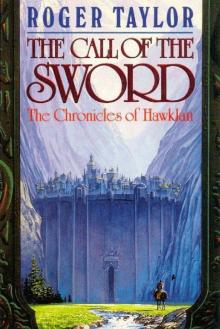 The call of the sword tcoh-1
The call of the sword tcoh-1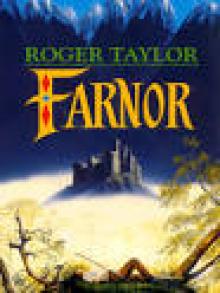 Farnor
Farnor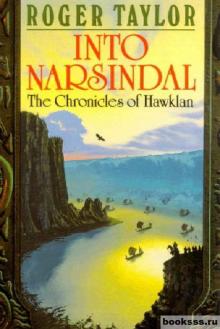 Into Narsindal
Into Narsindal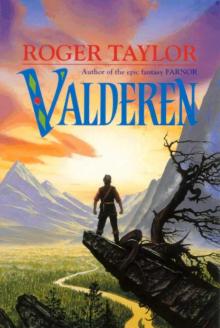 Valderen ft-2
Valderen ft-2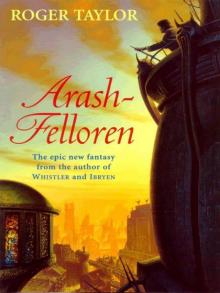 Arash-Felloren
Arash-Felloren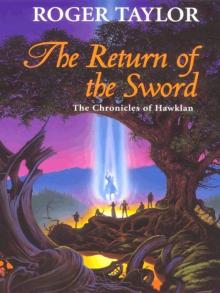 The Return of the Sword tcoh-5
The Return of the Sword tcoh-5![Ibryen [A sequel to the Chronicles of Hawklan] Read online](http://i1.bookreadfree.com/i1/03/26/ibryen_a_sequel_to_the_chronicles_of_hawklan_preview.jpg) Ibryen [A sequel to the Chronicles of Hawklan]
Ibryen [A sequel to the Chronicles of Hawklan]![The Call of the Sword [Book One of The Chronicles of Hawklan] Read online](http://i1.bookreadfree.com/i/03/24/the_call_of_the_sword_book_one_of_the_chronicles_of_hawklan_preview.jpg) The Call of the Sword [Book One of The Chronicles of Hawklan]
The Call of the Sword [Book One of The Chronicles of Hawklan]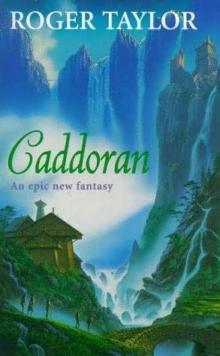 Caddoran
Caddoran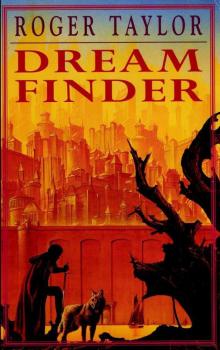 Dream Finder
Dream Finder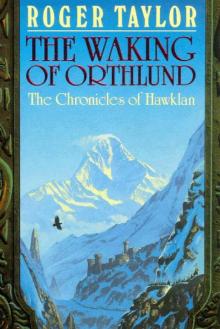 The Waking of Orthlund
The Waking of Orthlund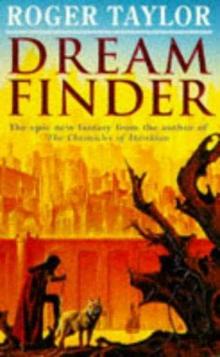 Dream Finder cohs-1
Dream Finder cohs-1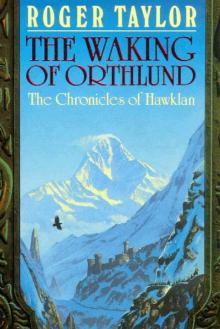 The waking of Orthlund tcoh-3
The waking of Orthlund tcoh-3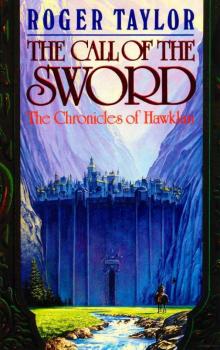 The Call of the Sword
The Call of the Sword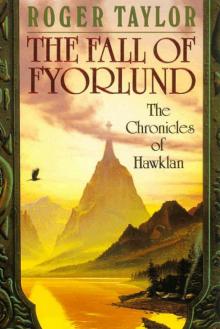 The fall of Fyorlund tcoh-2
The fall of Fyorlund tcoh-2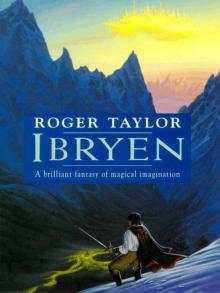 Ibryen
Ibryen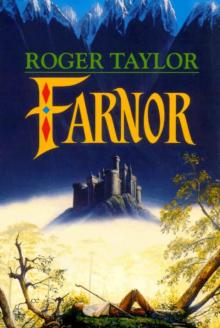 Farnor ft-1
Farnor ft-1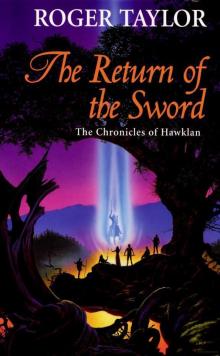 The Return of the Sword
The Return of the Sword![Into Narsindal [Book Four of The Chronicles of Hawklan] Read online](http://i1.bookreadfree.com/i2/04/06/into_narsindal_book_four_of_the_chronicles_of_hawklan_preview.jpg) Into Narsindal [Book Four of The Chronicles of Hawklan]
Into Narsindal [Book Four of The Chronicles of Hawklan]![Valderen [The Second Part of Farnor's Tale] Read online](http://i1.bookreadfree.com/i2/04/05/valderen_the_second_part_of_farnors_tale_preview.jpg) Valderen [The Second Part of Farnor's Tale]
Valderen [The Second Part of Farnor's Tale]![The Fall of Fyorlund [Book Two of The Chronicles of Hawklan] Read online](http://i1.bookreadfree.com/i2/04/08/the_fall_of_fyorlund_book_two_of_the_chronicles_of_hawklan_preview.jpg) The Fall of Fyorlund [Book Two of The Chronicles of Hawklan]
The Fall of Fyorlund [Book Two of The Chronicles of Hawklan]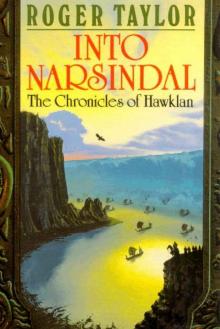 Into Narsindal tcoh-4
Into Narsindal tcoh-4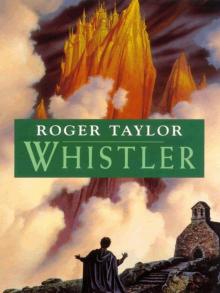 Whistler
Whistler![Whistler [A sequel to The Chronicles of Hawklan] Read online](http://i1.bookreadfree.com/i2/04/12/whistler_a_sequel_to_the_chronicles_of_hawklan_preview.jpg) Whistler [A sequel to The Chronicles of Hawklan]
Whistler [A sequel to The Chronicles of Hawklan]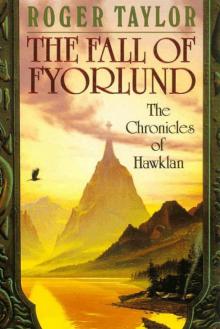 The Fall of Fyorlund
The Fall of Fyorlund![The Waking of Orthlund [Book Three of The Chronicles of Hawklan] Read online](http://i1.bookreadfree.com/i2/04/11/the_waking_of_orthlund_book_three_of_the_chronicles_of_hawklan_preview.jpg) The Waking of Orthlund [Book Three of The Chronicles of Hawklan]
The Waking of Orthlund [Book Three of The Chronicles of Hawklan]